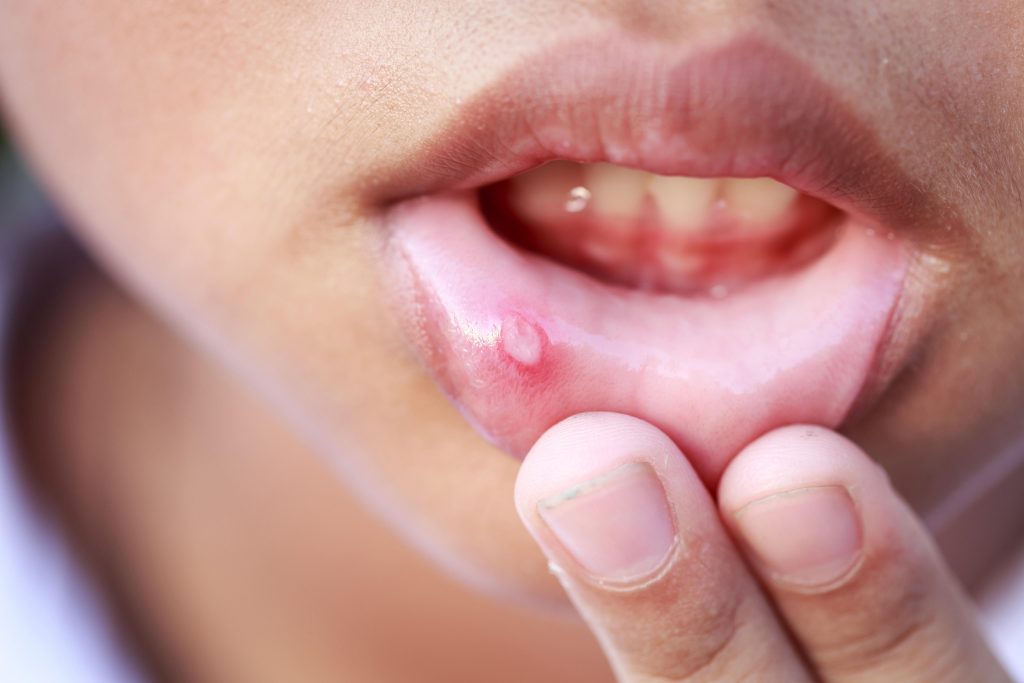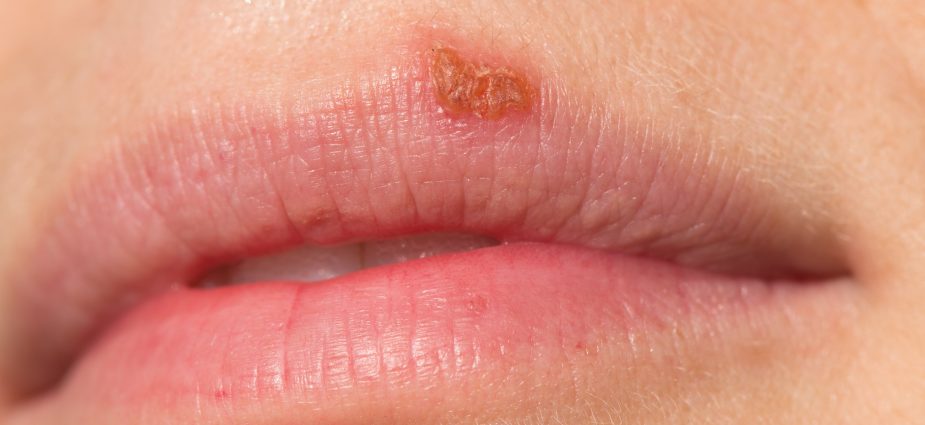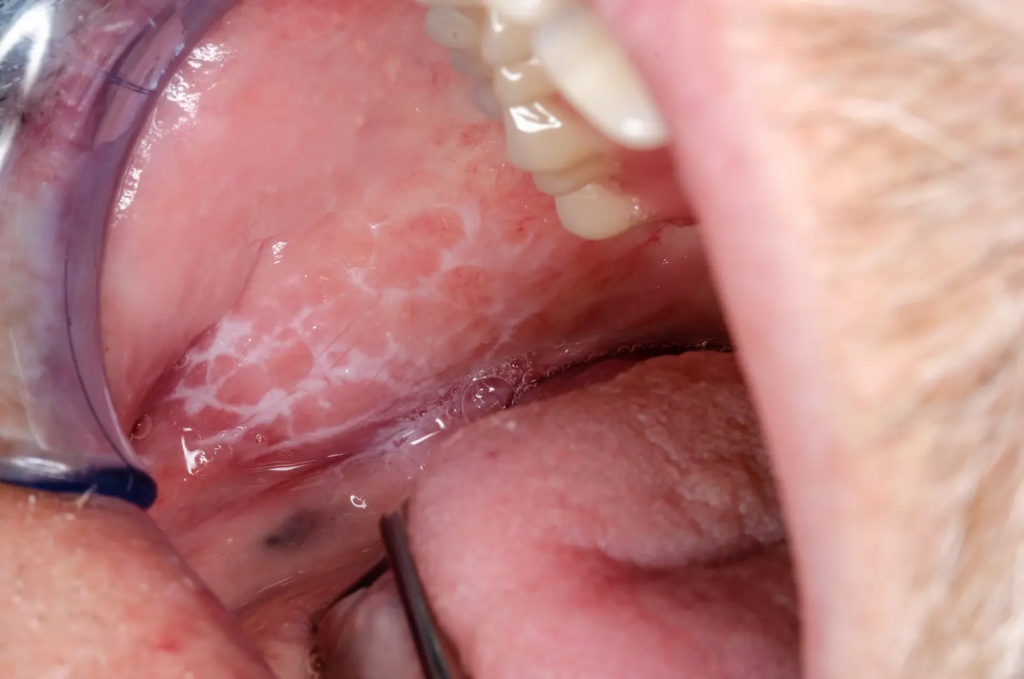Diseases of the Mouth: Mouth Ulcers, Herpes, Lichens and their Treatment
The mouth is an important part of the body, and it is often the first point of entry for food and drink. However, the mouth can also be a breeding ground for bacteria, viruses, and fungi, which can lead to many different diseases. Some of the most common diseases of the mouth include mouth ulcers, herpes, and lichens. In this article, we will discuss these diseases in detail and explore the various treatments available.

Mouth Ulcers
Mouth ulcers are small, painful sores that develop on the inner lining of the mouth, lips, and tongue. They are usually round or oval and can be white, yellow, or gray in color. Mouth ulcers can be caused by a variety of factors, including stress, injury, or certain medical conditions. They can also be a symptom of an underlying health condition.
Mouth ulcers are a common problem and affect around 20% of the population. They can be uncomfortable and painful, making it difficult to eat, drink, and talk. Fortunately, there are many treatments available to alleviate the symptoms of mouth ulcers.
Treatment for mouth ulcers may include topical medications, such as gels or creams, to reduce pain and inflammation. Some people also find relief by rinsing their mouth with saltwater or using an antiseptic mouthwash. In addition, avoiding spicy or acidic foods can help prevent further irritation. But to avoid having this annoying ulcers, doing the things below will help you;
- Protective pastes that create a barrier on the ulcer to reduce exposure to irritants
- Superficial tissue cauterization using a silver nitrate rod
- Local anesthetics benzocaine and lignocaine to reduce pain
- Sodium laureth sulfate-free medicated toothpaste
- Antibacterial mouthwashes to reduce secondary infection
- Avoiding foods that trigger or aggravate ulcers
- Supplementation with vitamins or minerals
- Avoiding stressful situations
In some cases, mouth ulcers may be a symptom of an underlying health condition, such as celiac disease or inflammatory bowel disease. If you are experiencing recurrent mouth ulcers or other symptoms, it is important to consult with a healthcare professional for an accurate diagnosis and treatment plan.

Herpes
Herpes is a highly contagious virus that can cause cold sores or fever blisters to develop on or around the mouth. The virus is spread through close contact with someone who has an active outbreak. Herpes is a common virus and affects around 67% of the population.
Encountering with the herpes virus occurs in many people. The incubation period is 3-10 days. Symptoms are mild in some patients and severe in others. Headache, sore throat, difficulty swallowing, weakness, fever, sores in the mouth and on the lips are observed. The fluid-filled blisters, which initially form groups similar to grape clusters, quickly turn into aphthous-like appearance. There are widespread painful abrasions in the mouth, watering, foul odor and local lymph node swelling. The symptoms usually resolve in 2-4 weeks.
In recurrent infections after a passive period, the symptoms are often milder and heal in about 7 days. The patient senses that symptoms will appear shortly before the signs of herpes appear. Tingling, burning, stinging, itching and sensitivity sensations occur on the skin of the face, often on the lips and around the lips. Following these sensations, fluid-filled blisters appear within a short period of time. These fluid-filled blister groups may have a single focus, or they may occur in multiple foci and in different sizes.
Symptoms of herpes can include pain, itching, and burning sensations. The first outbreak is usually the most severe, and subsequent outbreaks may be less severe. While there is no cure for herpes, antiviral medications can help reduce the severity of symptoms and prevent future outbreaks.
It is also important to avoid close contact with others during an active outbreak to prevent the spread of the virus. Herpes can be spread through contact with the mouth, genitals, or anal area. It is also important to practice safe intercourse to prevent the spread of genital herpes.

Lichens
Lichens are a type of chronic inflammatory disease that can affect the mouth, tongue, and gums. They are characterized by white, lacy patches on the affected areas. Lichens can be caused by a variety of factors, including stress, certain medications, and autoimmune disorders.
Lichen planus is the most common type of oral lichen, and it affects around 2% of the population. It is more common in women than men and usually affects people over the age of 50.
Treatment for lichens may include topical or oral medications to reduce inflammation and relieve pain. It is also important to maintain good oral hygiene to prevent further irritation. If you are experiencing symptoms of lichens, it is important to consult to a healthcare professional for an accurate diagnosis and treatment plan.

Prevention
Prevention is the best way to avoid developing diseases of the mouth. Good oral hygiene is essential, including brushing twice a day, flossing, and using mouthwash. It is also important to avoid smoking and excessive alcohol consumption, which can increase the risk of developing oral cancer.
Eating a healthy, balanced diet can also help prevent diseases of the mouth. Foods that are high in sugar or acid can increase the risk of developing cavities and other dental problems. Eating a diet rich in fruits, vegetables, and whole grains can help keep your mouth healthy.
Conclusion
To sum up, having a healthy mouth means less ulcers, herpes, lichens and other oral diseases. When you give the importance to eat healthy, your oral health will be high. Diseases of the mouth, such as mouth ulcers, herpes, and lichens, can be uncomfortable and painful. However, there are many treatments available to alleviate the symptoms and prevent further damage. It is important to maintain good oral hygiene and avoid triggering factors, such as spicy or acidic foods, to prevent further irritation. If you are experiencing symptoms of any of these diseases, it is important to consult with a healthcare professional for an accurate diagnosis and treatment plan.
Remember, prevention is the best way to avoid developing diseases of the mouth. Having a healthy diet, practicing good oral hygiene, and avoiding smoking and excessive alcohol consumption can help to keep your mouth healthy.




